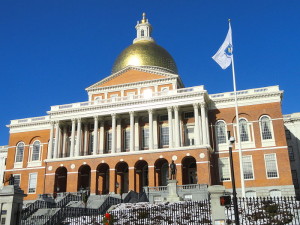Facing the lowest level of state support in the nearly 20-year history of the program, cities and towns that have adopted the Community Preservation Act are hopeful that 2019 will be the last year of volatile state funding for this key pipeline of money for parks and affordable housing.
Gov. Charlie Baker and the House of Representatives have both indicated their support for increasing the housing-related fees that generate state funding for the CPA Trust Fund, with the House passing in its budget a proposal that would give the fund an infusion of $36 million in new money each year. A chief Senate supporter said Tuesday she is confident the Senate will do something similar.
The original idea of the Community Preservation Act was for the state to match 100 percent of what each participating municipality raised through its own property tax surcharge to build affordable housing, preserve open space, renovate historic buildings and parks and to build new playgrounds and athletic fields.
Almost two decades since the passage of the CPA, half of the communities in Massachusetts have opted into the program. But as more communities have adopted the CPA, each town’s share of the pie has become smaller.
The current fee structure – state matching funds are derived from a $20 fee assessed on certain real estate transactions through registries of deeds – and match rate formula have not been changed since the CPA went into law in 2000.
“The demand on the trust fund, the draw, has continued to rise every year. Meanwhile, the money at the Registry of Deeds has gone down,” Stuart Saginor, executive director of the Community Preservation Coalition, said at a briefing on Tuesday. “So you have increasing demand on the trust fund and the decreasing revenue, and you see what’s happened to the match. For the first six years of the program, the match was 100 percent.”
Saginor said that in the nearly 20 years since the deeds fees were established, inflation has wiped away about $10 – meaning the $20 fee in 2000, if adjusted for inflation, would equal $29.52 in 2019’s dollars. And because of the change to the real estate market since 2000, the deeds fees in 2018 brought in less than half of what they brought in when the CPA launched, he said. The fees generated $53 million in the first year and $24 million in 2018, Saginor said.
In the fiscal year 2020 budget it passed last week, the House adopted an outside policy section that would increase the recording fees that feed the CPA Trust Fund from $20 to $50 for most documents and from $10 to $25 for municipal lien certificates. The committee and the Community Preservation Coalition estimate that the proposal would provide the CPA Trust Fund with an infusion of $36 million in new money each year.
During last year’s gubernatorial campaign, Gov. Charlie Baker indicated that he would support an increase in the registry of deeds fees that seed the CPA Trust Fund.
Even if the Senate goes along with the House’s plan to increase the deeds fees to make more money available to CPA communities, Saginor said the change would not take effect in time to prevent a record low distribution later this year, but would go a long way when cities and towns get their 2020 distribution.
The coalition said the Department of Revenue estimated that fiscal year 2020’s state match rate would be a record low of 11.5 percent of what communities raised, down from about 19 percent in fiscal 2019.






